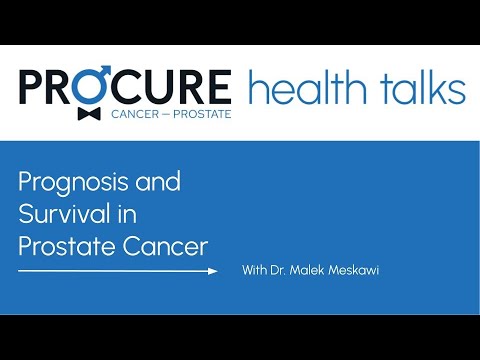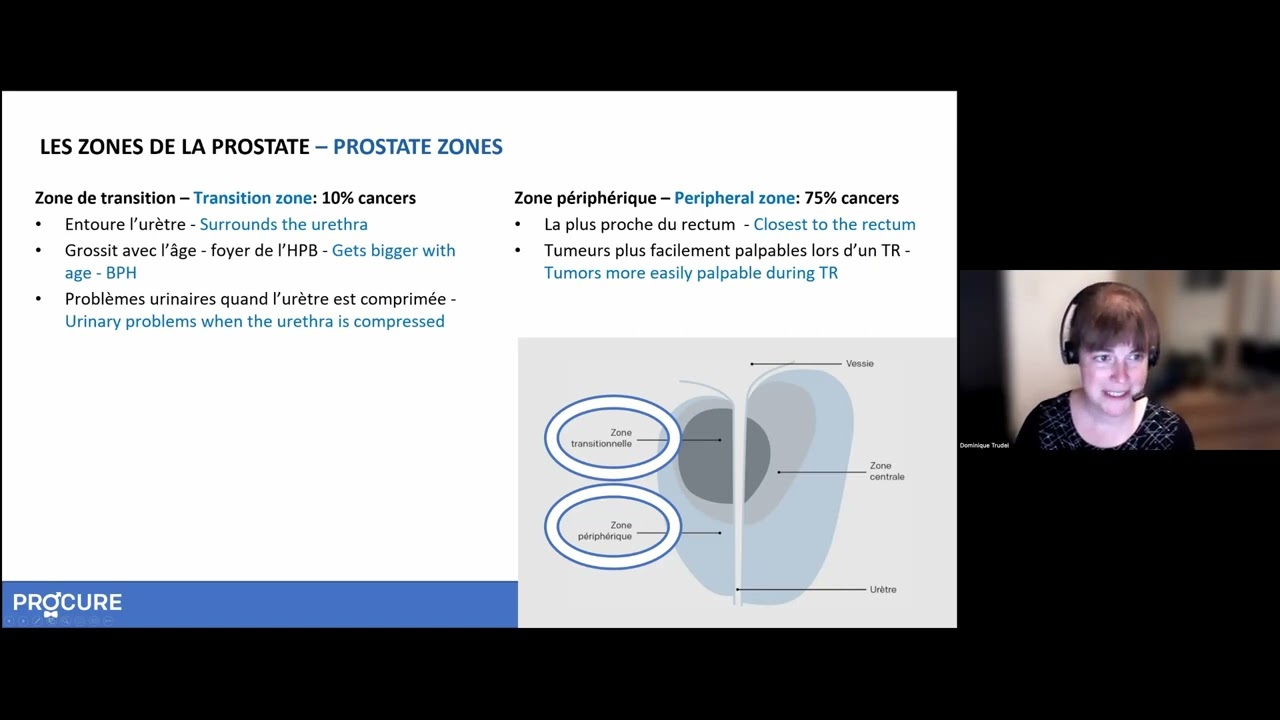Cancerous tumours
- Prostate diseases
- Cancerous tumours
- Overview
- Facts and figures
- Key points

Cancerous tumours
Cancerous tumors

Nowadays, advanced techniques are used to produce an extremely accurate diagnosis. In addition, multiple effective therapeutic approaches can halt or slow the progression of the disease. In most cases, the prognosis is encouraging.
Prostate cancer is the most common form of cancer in men. It is sometimes indolent, sometimes fatal and it causes little or no symptoms at first. Although it strikes on average around the age of 67, it can affect men in their forties or fifties. In Quebec, nineteen (19) men are diagnosed daily.
Although the incidence of prostate cancer continues to increase, the latest advances in treatment have reduced the risk of death. Indeed, considerable progress has been made in terms of invasive surgeries or specific radiation therapies to treat certain forms of prostate cancer, which in turn has reduced the risk of complications and has allowed for a faster recovery.
The exact causes of prostate cancer remain largely unknown. However, research has highlighted some risk factors.
Generally speaking, cancer is characterized by uncontrolled growth of abnormal cells. It can affect any type of cell in an organ, a gland, muscle tissue, blood or the lymphatic system.
Under normal conditions, the cells in our bodies contain all the information they need for their development, function, reproduction and death. Usually, our cells do their work properly and we remain healthy. However, sometimes a few of the cells do not behave normally and begin multiplying uncontrollably, eventually forming a group of abnormal cells. After a while, this group forms a detectable lump known as a tumour.
Over time, the malignant cells in cancerous tumours can invade neighbouring tissue or organs. They may even spread to the rest of the body through the blood or lymphatic system. This stage is known as “metastasis.”
In the case of prostate cancer, the secretory cells are usually the ones that become cancerous. Once the cancer has been diagnosed, treatment is determined depending on the stage of the disease and the overall health of the patient.
Types of prostate cancer
Prostate cancer is a very heterogeneous disease, some progress very slowly while others are more aggressive. In reality, most cases are somewhere between the two. For the moment, science does not have the tools to accurately predict the growth rate of a person’s cancer once it has been diagnosed. Clinicians use a variety of information to estimate the speed of the cancer.
About 14 percent of Canadians suffer from “clinical” prostate cancer, meaning their disease has been detected by a doctor and officially diagnosed. However, studies of autopsy reports have shown that another 30 percent of men have latent cancer, meaning the cancerous cells lie dormant in the prostate. Although present, the cancer does no harm because it does not attack the body. Not all men develop latent prostate cancer, but the probability of doing so increases with age.
According to the current state of knowledge, prostate cancer is one of the few cancers that can remain in latent form for such a long period of time. Researchers are trying to understand why some cancers remain latent while others develop into full-blown diseases. While it is generally believed that risk factors and genes play an important role in the development of clinically significant cancer, the precise mechanism is still unknown.
Additional Information - Prostate diseases

Urologist’s advice: Treatments and information on prostate cancer
Learn more about the role of the urologist and the importance for a patient to gather adequate information after receiving a prostate cancer diagnosis.

How I coped with prostate cancer
A man with prostate cancer shares the challenges of his cancer experience.

Genetics and prostate cancer
Do you have a family history of cancer? Your doctor might recommend genetic screening.

Symptoms, risk and screening
Are you over 50 or experiencing urinary problems? Discover why early screening for prostate diseases is important.

Prostate cancer prognosis and survival
After a prostate cancer diagnosis, questions about survival, cure rates, and quality of life can arise.

Prostate cancer: Tests, imaging and biomarkers
This webinar covers various tests and exams for diagnosing and monitoring prostate cancer.

Biopsy: Understanding your report
This webinar clarifies biopsy reports, pathologists’ roles, and how results confirm or rule out prostate cancer.

Your prognosis and survival
After receiving a diagnosis of prostate cancer, you will undoubtedly have questions about your prognosis and survival and will want to know the chances of success with your treatment.

What is a genetic mutation?
Do you have a significant family history of cancer? Is there a link between prostate cancer and a genetic mutation?

Finding the right words
Prostate cancer often overwhelms patients. Finding the right words is crucial to comfort and support them.

Link between prostate cancer and obesity
If you are obese or overweight, it is more likely that prostate cancer will be diagnosed at a more advanced stage…

Prostate cancer: Is it a disease of the elderly?
It depends on the definition of old. Is being 50 years old really considered “old”?

What women should know about prostate cancer
As a woman, you might think that prostate cancer is not your concern because you don’t have a prostate. However, prostate cancer is the most common cancer in men.

I was told no to the PSA test
The PSA test should generally be offered to any man aged 50 and over with a life expectancy of at least ten years. So why this refusal?

Me a guinea pig?
Did you know that participating in a clinical trial advances medical science and improves the lot of patients for future generations?

Your role as a patient
Have you been diagnosed with prostate cancer? Your role as a patient is essential throughout your journey.
Sources and references
Last medical and editorial review: April 2024. See our web page validation committee and our collaborators by clicking here.



